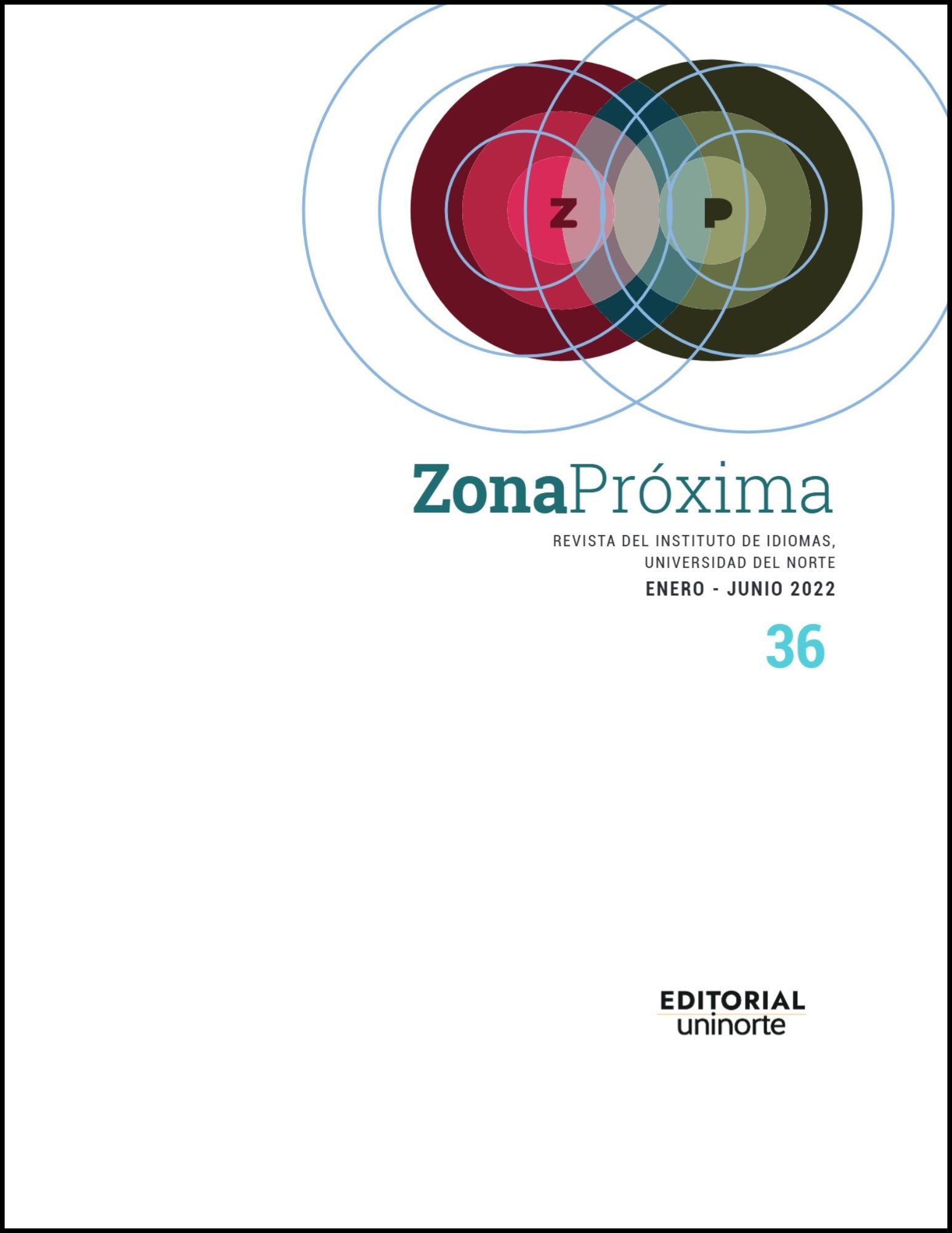Resumen
El objetivo del artículo es analizar las prácticas docentes que favorecen el desarrollo de la Inteli-gencia Emocional (IE) en universitarios a través de un enfoque mixto con un diseño exploratorio secuencial derivativo. En congruencia, dentro de la primera fase de la investigación se conforma-ron cinco grupos focales donde participaron 25 estudiantes, cuyos resultados fueron examinados mediante la técnica de análisis de contenido usando como categorías las dimensiones del modelo de Mayer y Salovey (1997). En la segunda fase se realizó un análisis de frecuencias de las prác-ticas obtenidas a partir de las respuestas de los grupos focales en una muestra de 337 alumnos mediante el Cuestionario de Detección de Prácticas Docentes para el Desarrollo de la IE. Como resultado de la aplicación los estudiantes reportan que solo 11 de las 26 prácticas identificadas por el instrumento se aplican de forma frecuente o muy frecuente en las aulas de educación superior.
Citas
Ariza-Hernández, M.L. (2017). Influencia de la inteligencia emocional y los efectos de la relación maestro-alumno, en el rendimiento académico de estudiantes de educación superior. Educación y Educadores, 20(2), 193-210. https://www.researchgate.net/publication/319313344
Asociación Nacional de Universidad e Instituciones de Educación Superior. (2015). Prácticas de tutoría, prácticas docentes y formación de los estudiantes. ANUIES
Bain, K. (2008). Lo que hacen los mejores profesores universitarios. Universidad de Valencia.
Bisquerra Alzina, R., Pérez Gonzalez, J. y García Navarro, E. (2015). Inteligencia emocional en educación. Síntesis.
Caruso, D. y Salovey, P. (2005). El ejecutivo emocionalmente inteligente. Algaba. Cases Hernández, I. (2007). La educación emocional del profesorado. Lumen.
Castillo, R., Fernández-Berrocal, P. y Brackett, M. (2013). Enhancing teacher effectiveness in Spain: A pilot study of de RULER approach to social and emotional learning. Journal of Education and Training Studies, 1(2), pp-pp. Doi: 10.11114/jets.v1i2.xxx
Cejudo, J. y López-Delgado, M.L. (2017). Importancia de la inteligencia emocional en la práctica docente: un estudio con maestros. Psicología Educativa, (23), 29-36. Doi: 10.1016/j.pse.2016.11.0001
Delors, J. (comp.)(1996). La educación encierra un tesoro. UNESCO.
Extremera Pacheco, N., Durán, A. y Rey, L. (2007). Inteligencia emocional y su relación con los niveles de burnout, engagement y estrés en estudiantes universitarios. Revista de Educación, 342, 239- 256. https://www.researchgate.net/publication/319313344
Extremera, N. y Fernández- Berrocal, P. (2003). La importancia de desarrollar la inteligencia emocional en el profesorado. Revista Iberoamericana de Educación, 31, 1-10. https://rieoei.org/historico/ deloslectores/759Extremera.PDF
Fernández Chaves, F. (2002). El análisis de contenido como ayuda metodológica para la investigación. Revista de Ciencias Sociales (Cr), 2(96), 35-53. http://www.redalyc.org/pdf/153/15309604.pdf
Fernández-Pinto, I., López Pérez, B. y Márquez, M. (2008). Empatía: Medidas, teorías y aplicaciones en revisión. Anales en Psicología, 24(2), 284-298. http://www.redalyc.org/articulo. oa?id=16711589012
Fragoza González, A., Cordero Arrollo, G. y Fierro Evans, C. (2018). El uso de un modelo interaccionista para el análisis de las prácticas docentes. Revista Actualidades Investigativas en Educación, 18(3), 1-20. https://revistas.ucr.ac.cr/index.php/aie/article/view/34381/33967
Gilar-Corbi, R., Pozo-Rico, T. y Castejón-Costa, L. (2019). Desarrollando la inteligencia
emocional en educación superior: evaluación de la efectividad de un programa en tres países. Educación XX1, 22(1), 161-187. Doi: 10.5944/educXX1.19880
Goleman, D. (2000). La Inteligencia Emocional Aplicada a las Organizaciones. Kairos Hernández-Sampieri, R., Fernández Collado, C. y Baptista Lucio, P. (2014). Metodología de la Investigación. McGraw-Hill
Landau, J. y Meirovich, G. (2011). Development of student’ emotional intelligence: Participative clas- sroom environments in higher education. Academy of Educational Leadership Journal, 15(3), 89- 104.
López Noruego, F. (2002). El análisis de contenido como método de investigación. XXI Revista de Educación, 4, 167- 179. http://rabida.uhu.es/dspace/bitstream/handle/10272/1912/b15150434. pdf?sequen
Mayer, J. y Salovey, P. (1990). Emotional Intelligence. Imagination, Cognition, and Pesonality, 9(3), 185-211.
Mayer, J. y Salovey, P. (1997). What is Emotional Intelligence? En Salovey, P. y Sluyter, N. (Eds.), Emotional Development and Emotional Intelligence (pp. 3-31). Basic Books.
Mortiboys, A. (2016). Como enseñar con inteligencia emocional: guía paso a paso para profesionales de educación media superior, superior y posgrado. Patria.
Nathanson, L., Rivers, S., Flynn, L. y Brackett, M. (2016). Creating Emotionally Intelligent Schools with RULER. Emotion Review, 8(4), 1-6. Doi: 10.1177/1754073916650495
Paéz Cala, M.L. y Castaño Catrillón, J.J. (2015). Inteligencia emocional y rendimiento académico en estudiantes universitarios. Psicología Desde el Caribe, 32(2), 268-285. Doi: 10.14482/ psdc.32.2.5798
Quezada, A. y Canessa, E. (2008). La complejidad de los procesos educativos en el aula de clases. Educar, Curitiva, (32), 103- 119. http://www.scielo.br/pdf/er/n32/n32a09.pdf
Rychen, D. y Hersh Salganik, L. (Comp.). (2006). Las competencias clave para el bienestar personal, económico y social. Aulae.
Salovey, P., Brackett, M. y Mayer, J. (2004). Emotional Intelligence. Key readings on the Mayer and Salovey Model. Dude.
Vázquez de la Hoz, F.J. (2007). Inteligencia emocional en las organizaciones educativas. Psicogente, 10(17), 42-59. http://revistas.unisimon.edu.co/index.php/psicogente/article/view/1573/1532
Yadav, V., Naveen, Tiwari, T. y Singh, A. L. (2017). Mental health in relation to emotional intelligence among university students. Indian Journal of Health & Wellbeing, 8(10), 1210–1212.
Zabalza Meraza, M.A. (2012). El estudio de las buenas prácticas docentes en la enseñanza universita- ria. Revista de Docencia Universitaria, 10(1). 17-12. Doi: 10.4995/redu.2012.6120


